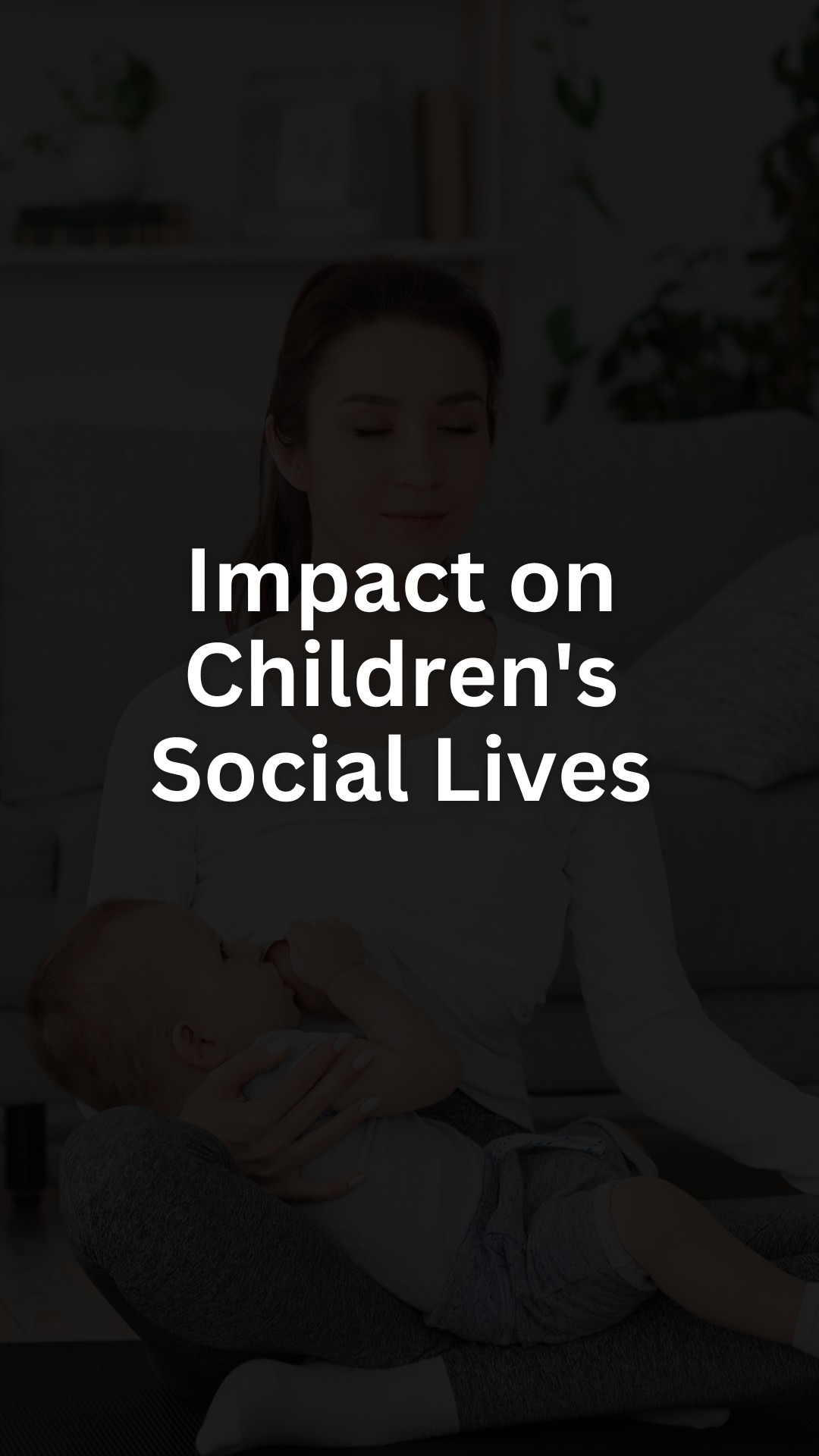Going through a divorce can significantly impact your social life. Friendships may change, and you might feel isolated.
Adjusting to these changes requires effort and understanding.
You may find yourself struggling to maintain relationships that were once easy. Your friends might take sides, or you may drift apart from mutual friends.
Navigating this new terrain can be challenging.
It’s also possible to rebuild and create new social connections.
Meeting new people and finding supportive communities can help you cope with the changes.
This transformation can open doors to different and potentially more fulfilling social experiences.
Understanding Divorce

Divorce involves both legal and emotional challenges. This section breaks down the key aspects you need to know about the process and psychological aspects.
Legal Process of Divorce
The legal process of divorce starts with filing a petition. One spouse files the petition in court to begin the divorce proceedings. This document includes details about the marriage, any children, property, and reasons for divorce.
Next is the service of process, where the petition is delivered to the other spouse. They have a chance to respond, agreeing or disagreeing with terms stated in the petition.
Negotiation and settlement follow. Here, you and your spouse, often with lawyers, try to agree on asset division, child custody, support, and other matters.
If you can’t agree, the case goes to court hearings. A judge will then decide on unresolved issues.
Finally, the judge signs a divorce decree. This document finalizes the divorce and outlines the responsibilities of each party.
This can be a lengthy process, especially if disputes arise.
Psychological Stages of Divorce
Divorce can be emotionally taxing, causing you to go through several psychological stages.
The first stage is denial. You may find it hard to accept that your marriage is ending. This stage is often marked by feelings of shock and disbelief.
Anger follows. You might feel frustration and resentment towards your spouse for perceived wrongs during the marriage.
Next, you may experience bargaining. In this stage, you might question if there’s anything you can do to save the marriage. You may make promises to change habits or seek counselling together.
Depression can set in as reality becomes clearer. You may feel deep sadness, loneliness, and a sense of loss for what you once had or hoped for.
Finally, there’s acceptance. At this stage, you start to come to terms with the situation. You begin to plan your future and move forward.
Each stage affects you differently, but understanding these feelings can help you navigate through this challenging time.
Social Dynamics Post-Divorce

After a divorce, your social life can change a lot. Your friendships and family ties may be impacted in different ways.
Changes in Friendships
Divorce can make friendships more complicated. Some friends might pick sides, while others could drift away because they feel awkward or unsure how to act.
You may find new friends who understand what you’re going through, often because they have faced similar situations.
You might notice that some friends who were close with both you and your ex-spouse may distance themselves. This can be hurtful, but some friendships do strengthen and grow during this time.
Community support groups or activities can be a great place to meet new, supportive people.
Being open and honest with your friends about your feelings can help maintain strong connections.
It’s important to communicate your needs clearly, and you may find that friends are more supportive than you expected.
Family Relationships
Family dynamics often shift after a divorce too. You might feel closer to some family members who provide extra support, while others may become more distant.
Parental relationships may need special attention, especially when co-parenting children.
Spending time with supportive family members can help you adjust. They can offer a sense of stability and love during a turbulent period.
You may also need to set boundaries with family members who are less supportive or judgemental.
It’s also common to develop new routines and traditions with your children and other family members.
These new dynamics can create a fresh, positive environment for everyone involved.
Rebuilding Your Social Circle

Rebuilding your social circle after a divorce can be challenging. You’ll need to balance meeting new people while maintaining existing connections that matter to you.
Meeting New People
Joining clubs and groups can be a great way to meet new people who share similar interests.
Think about activities you enjoy, like sports, book clubs, or art classes. Websites and community centers often list local groups you can join.
Volunteering can also connect you with others. By giving your time to causes you care about, you’ll meet people who value the same things. This can lead to strong, meaningful friendships.
Consider social events hosted by local organizations. Attending neighborhood gatherings or social mixers can help you expand your social network.
Maintaining Existing Connections
Maintaining existing connections can be just as important as making new ones.
Reach out to close friends and family regularly. Stay connected through calls, texts, or coffee meet-ups. They can provide support during this transitional time.
Try to plan regular activities with friends. Whether it’s a weekly dinner, a movie night, or a walk in the park, consistent interaction helps keep these relationships strong.
Be open with friends about your feelings. Sharing your experiences can bring you closer, making your bonds even stronger.
Dating After Divorce

Starting to date again after a divorce can be exciting but also challenging. It’s important to know when you’re ready and what to consider, especially with online dating.
When to Start Dating
After divorce, it’s crucial to give yourself time to heal. Jumping into a new relationship too soon can be overwhelming.
Pay attention to your emotional state. Are you still angry or sad about the divorce? It may be best to wait.
Make sure you’re comfortable with who you are and your new life. Building a strong sense of independence helps.
Talk to friends or a therapist to gauge if you’re ready. There’s no fixed timeline; it varies for everyone. Listen to your feelings and keep your mental health in mind.
Online Dating Considerations
Online dating opens new opportunities but comes with challenges.
Create a profile that reflects your true self. To attract the right matches, be honest about your interests and values. Use recent photos and avoid misleading information.
Safety is a top priority. Research and use reputable dating sites.
Be cautious about giving out personal details too soon. Meet in public places for the first few dates.
Trust your instincts; if something feels wrong, it probably is.
Having clear communication is key. Be upfront about your situation and what you’re looking for. This helps prevent misunderstandings and sets clear expectations.
Impact on Children’s Social Lives

Divorce can affect children’s friendships and their experiences at school. Emotional support and good communication between parents can help children adapt better during this period.
Supporting Your Children
Children may feel confused or sad during a divorce. To help, listen to their feelings and provide a stable environment. Encourage them to share their thoughts without fear of judgment.
Spend quality time with them and maintain routines. Keep in touch with their teachers to monitor their behavior at school.
Offer reassurance that both parents will continue to love and support them.
Connecting with a counselor or joining support groups can also be beneficial. These professionals offer coping strategies and a space for children to express themselves freely.
Co-Parenting Communication
Effective co-parenting can greatly impact children’s well-being.
It’s important to be polite and clear when discussing matters related to the child. Avoid arguing in front of the children, as this can be stressful for them.
Share essential information about the child’s schedule, school, and health. Use calendars or apps to keep track of important dates and responsibilities.
Consistency in rules and routines between households helps children adjust more easily.
Having regular family meetings can also help. This way, both parents stay informed and involved in the child’s life, promoting a sense of stability and security.
Social Stigma and Overcoming Challenges

Divorce can lead to stereotypes and social stigma. Learning how to handle these stereotypes and finding effective coping strategies are crucial steps in maintaining a healthy social life after divorce.
Dealing With Stereotypes
After a divorce, you might face stereotypes about being single again.
People might wrongly assume things about your personality, your parenting, or your decisions. These labels can feel unfair and hurtful.
To manage this, it’s important to remember that these stereotypes often come from a place of ignorance.
Educate those around you if they are open to learning. If not, distance yourself from negative influences and surround yourself with understanding and supportive friends and family.
Stay confident in your decisions. Being divorced doesn’t define your worth or capabilities.
Focus on your strengths and remind yourself that you can still succeed in personal and social settings.
Coping Strategies
Coping with the social implications of divorce requires resilience and self-care. Here are some strategies:
- Build a Support Network: Lean on friends, family, or support groups.
- Seek Professional Help: Therapists can provide valuable tools for dealing with social stress.
- Practice Self-Care: Engage in activities you enjoy to boost your mood and confidence.
- Set Boundaries: Limit interactions with those who bring negativity into your life.
- Stay Active: Physical activities—like walking or yoga—can reduce stress and improve your well-being.
Finding positive ways to cope will help you face social stigma and move forward with confidence.
Engaging in Social Activities

Participating in social activities after a divorce can be challenging. It’s important to find new interests and manage socializing as a single parent.
Finding New Interests
Try exploring new hobbies or interests. You might join a book club, start painting, or take up gardening.
These activities help fill your time and meet people who share similar passions.
Classes and Workshops: Look for local community centers offering classes. These can range from cooking to tech courses.
Volunteering: Getting involved in community services or charities can be rewarding and a great way to make new friends.
Keep track of local events. Attend festivals, fairs, or social meetups.
Introduce yourself and start conversations. Feeling hesitant at first is normal, but with practice, you’ll gain confidence.
Socializing as a Single Parent
Balancing social life with parental responsibilities can be tricky.
Plan playdates with other parents; this keeps your child engaged and gives you a chance to socialize.
Parent Groups: Join online or local parent groups. They can provide support, friendship, and advice on handling single parenthood.
Childcare Solutions: Arrange reliable childcare for social events. Trusted family or babysitters can give you the freedom to enjoy adult-only activities.
Make sure to include your kids in some social activities.
Family-friendly events can be enjoyable for both you and your children.
Balancing time between personal social activities and family outings helps maintain a healthy social life.
The Role of Social Media

Social media plays a significant role in shaping your social interactions during and after a divorce. It influences how you present yourself online and impacts your privacy.
Managing Online Presence
When going through a divorce, managing your online presence becomes crucial.
You may want to update your relationship status, adjust your profile picture, and review your past posts.
Pay attention to your friends list. Decide whom you want to stay connected with and whom to unfriend.
You should also consider the kind of content you post.
Sharing too much about your personal life can invite unwanted opinions and advice. Stick to neutral topics or things that make you happy.
Be mindful of how often you engage with your ex on social media. This can affect both your emotions and how others perceive your situation.
Privacy Considerations
Privacy becomes a major concern when you are going through a divorce.
Adjust your privacy settings to control who can see your posts and personal information.
Limit visibility of your profile to only close friends and family to avoid oversharing.
Be aware that others, including your ex, might monitor your social media activity.
Avoid posting anything that could be used against you in legal proceedings.
Think twice before sharing updates about new relationships or venting about the divorce.
It’s wise to remain discreet and protect your privacy during this time.
Support Systems and Counseling

Divorce can deeply affect your social life, making support systems and counseling essential.
Getting help from professionals and finding support groups are two key ways to navigate this challenging time.
Seeking Professional Help
Professional help, like therapy or counseling, can provide a safe space to express your feelings.
Therapists are trained to help you work through complex emotions and find healthy ways to cope. They offer techniques to manage stress, anxiety, and depression.
You may also learn how to improve communication and rebuild confidence.
It’s important to choose a therapist you feel comfortable with, as this can make a significant difference in your healing journey.
You might consider individual therapy, where you focus on your personal experience, or group therapy, where you can share experiences with others going through similar situations.
Finding Support Groups
Support groups offer a sense of community and understanding.
These groups bring together people who have experienced divorce, allowing you to share stories and advice.
They can be found through local community centers, churches, or online platforms.
In these groups, you may discover new coping strategies, make new friends, and realize you are not alone in your experience.
Participation can also provide a sense of belonging and reduce feelings of isolation.
Be sure to find a group that matches your comfort level, whether that means face-to-face meetings or online forums.
Personal Growth and Development

Divorce can be a challenging time, but it also presents opportunities for personal growth and setting new goals.
Focusing on self-care and planning can help you navigate this period of change.
Self-Care Practices
Taking care of yourself is crucial during and after a divorce.
Regular exercise, a healthy diet, and enough sleep can improve your physical health.
Mental health is equally important; consider activities like meditation, journaling, or therapy to process your emotions.
Spend time with supportive friends and family.
Hobbies and interests can be very comforting and provide a sense of normalcy.
Relaxation techniques, like deep breathing or yoga, can help manage stress and anxiety.
Setting aside time for personal enjoyment, such as reading or taking a short trip, can also be incredibly beneficial.
Simple steps like these can build a strong foundation for your overall well-being.
Setting Personal Goals
Divorce is a major life change, providing a unique chance to reflect and set personal goals.
Start small, setting achievable short-term goals to build confidence and momentum.
Focus on what brings you joy and fulfillment.
Consider what you want to achieve in your career, relationships, and personal hobbies.
Writing down your goals can make them feel more concrete and attainable.
Break down large goals into smaller steps to make progress more manageable.
Celebrate your achievements, no matter how small.
This can keep you motivated and reinforce your ability to change your life positively.
Focusing on personal goals can transform this challenging period into a time of growth and self-improvement.
Frequently Asked Questions

Divorce can impact your friendships, social challenges, social growth, and family dynamics. These changes also affect children’s social development.
How does divorce affect one’s friendships and social networks?
Divorce can change existing friendships. Friends may take sides, leading to lost or strained relationships.
Your social network might shrink as you spend less time with married friends and more with single friends.
What are the common social challenges faced by adults after divorce?
Social challenges include loneliness, adjusting to single life, and navigating dating again.
You might feel isolated or unsure about attending social events alone.
In what ways can divorce positively influence an individual’s social interactions?
Divorce can lead to personal growth and new opportunities.
You might meet new people with similar interests. The change can encourage you to build a stronger, more supportive social network.
What strategies can adults employ to rebuild their social lives following a divorce?
Reconnect with old friends or make new ones through hobbies and activities.
Joining support groups, clubs, or classes can help. Be open to new experiences and say yes to social invitations.
How does the social dynamic within a family change post-divorce?
Family gatherings might become complicated, needing careful planning.
Relationships with in-laws can change, and children may need help adjusting to new family structures and routines.
What psychological impact does witnessing parents’ divorce have on children’s social development?
Children might feel stress or confusion. These feelings can affect their friendships and social skills. They may also struggle with trust issues or feel insecure. As a result, they may need extra support to maintain healthy social interactions.